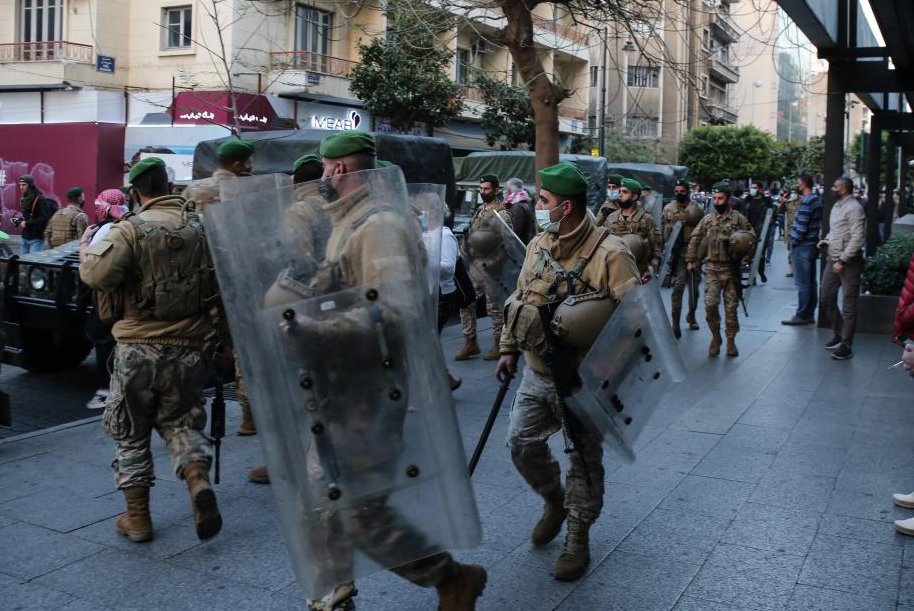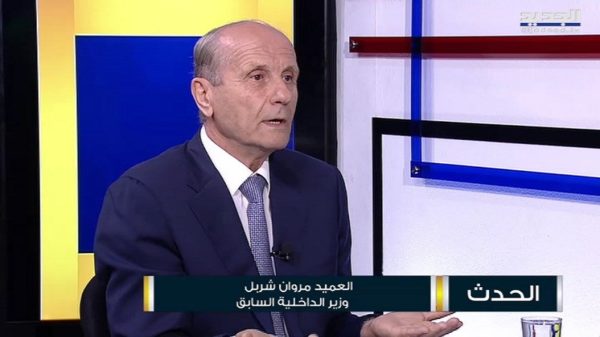By Dalal Saoud

BEIRUIT, Lebanon, March 19 (UPI) — The Lebanese Army, which has been playing a critical role in maintaining stability since the country’s worst crisis broke out 18 months ago, is facing the growing challenge of surviving a rapidly deteriorating economy, resisting political pressures, containing a looming security chaos and avoiding collapse.
The 80,000-member army is suffering like the rest of the population, but its commander, Gen. Joseph Aoun, has his own concerns and fears. In unusually blunt comments March 8, he criticized the ruling political leaders for doing practically nothing to rescue the country, which has resulted in discontent and growing malaise within the military institution.
“Soldiers, too, are suffering and going hungry,” Aoun said. “Where are we going? What do you intend to do? Do you want an army or not? Do you want the army to still stand on its feet or not?”
Political leaders have been quarreling for more than five months over the formation of a new government, while the Lebanese pound lost nearly 90% of its value since the crisis started in October 2019. It traded at more than 15,000 to the U.S. dollar for the first time in the black market this week.
The dramatic plunge in the national currency made a soldier’s monthly salary worth some $60 at the unstable black market exchange rate. Budget cuts that forced the army to remove meat from its meals, reduce benefits and see forces being overstretched trying to ease tension and face angry protesters have pushed members to the edge.
Most alarming is that the Lebanese Armed Forces might not be able to pay salaries by June amid reports that soldiers are requesting leaves of absence, while senior commanders are considering an early end of their services.
“The fact that there is a payroll cliff potentially in June [and] there are limits to how much money is available. … All of these things are part of the reason why the commander raised the alarm,” Aram Nerguizian, senior adviser of the Program on Civil-Military Relations in Arab States at the Malcolm H. Kerr Carnegie Middle East Center, told UPI during a phone interview from Washington.
“This is a situation where we have 80,000 soldiers with 50,000 plus or minus have married households and dependence,” Nerguizian said.
He explained, however, that members of the army understand that “citizens are in a far worse [situation] than they are,” but “there has to be some kind of turnaround or a turning point, whether it is a credible government or any government that can stabilize the pound.”
Without a trusted government quickly in place that would engage in swift negotiations with the International Monetary Fund to agree on a rescue plan for the country, angry protesters are poised to return to the streets amid increasing fears of riots and chaos insecurity.
While Aoun warned of an “explosive situation,” a leaked memo by Lebanese General Security cautioned against a possible major escalation in the streets, armed manifestations targeting politicians, chaos, sabotage, use of weapons, looting and theft.
With such fears, would the Army, which has been backing the Internal Security Forces in containing street protests since they first broke out in October 2019, be able to prevent the country from plunging into chaos?
Marwan Charbel, a retired brigadier general and former interior minister, stressed that a new government is needed within a maximum of one month to avoid chaos.
“Otherwise, it will be too late. … If chaos breaks out, no government will be able to stop it,” Charbel told UPI. “The conditions that led to the 1975-90 civil war don’t exist now, but the most dangerous [aspect] is that we are heading to chaos, which is even worse than a civil war. No one would then know who is supporting who and who is against who.”
He said the armed and security forces have the duty to “control the situation” as much as they can, adding, “But with not enough money, half of their vehicles needing spare parts and no financial aid for their children’s schooling or proper medical care, then what will happen?”
This week’s protests were a sample of the feared chaos scenario: protesters blocking roads with garbage containers and burned tires, forcing shops to close, and some exchanging gunfire in a Beirut neighborhood.
As unemployment and poverty rise, prices soar and citizens fight over the remaining subsidized goods, it will be hard to contain the growing popular anger.
“Chaos could mean thefts, crimes, assassinations, explosions and many other things including the infiltration of terrorist groups,” retired Brig. Gen. Chamel Roukoz, who is also a parliamentarian and son-in-law of President Michel Aoun, told UPI. “If the chaos starts, no one would be able to control it.”
Roukos lashed out at all the ruling political leaders, describing them as a “bunch of thieves who stole the country and … are incapable of taking any decision” to save the country.
He explained that the army’s 200 billion Lebanese pound budget “is nothing” compared to its needs for maintenance, spare parts and supporting its forces. “And this is affecting the morale of the troops,” he said.
Gen. Aoun seems to have opted for a different, more active approach.
“I have more confidence after March 8 [the Army commander speech]that the LAF has signaled the intent to [deal] with insecurity and chaos differently than it has,” Nerguizian said.
“It is very clear that the LAF will no longer be used as a hammer for the ruling power by saying that there are some things it will not be willing to act on.”

While Charbel, the former interior minister, disclosed that six of the country’s “top political figures “were informed that they are “in danger of being assassinated,” Nerguizian said the army runs the same risks.
“My concern is that also after March 8, the risk of bodily harmed or indirect harm to the command has increased, potentially,” he said. “Not just the commander, but those close to him or some even not in uniform who could be used as a message to intimidate him and those around him. Those are the things I am worry about.”
Nerguizian dismissed as “premature” any talk about “imminent or even short- to medium-term collapse” of the army, which has become an increasingly professional and capable national military institution after the withdrawal of Syrian troops from Lebanon in 2005.
However, the military institution would need quickly more assistance from its traditional foreign allies, some of whom have recently dispatched food donations and medical supplies.
“There is an international decision to help the Army, but could the army and the security forces hold on until then?” Roukos asked.
Experts argue that it is not in anyone’s interest to let the army collapse and leave the country under the influence and control of the Iran-backed, heavily armed Hezbollah.
“Hezbollah’s model undermines the legitimacy and the work of the LAF,” Nerguizian said. “There will always going to be a conflict. … I don’t mean a war. … [I] mean [a] clash of ideas. The army and Hezbollah cannot both exist as the ultimate defender of Lebanon. There will only be one.”
(UPI)

Leave a Reply
You must be logged in to post a comment.